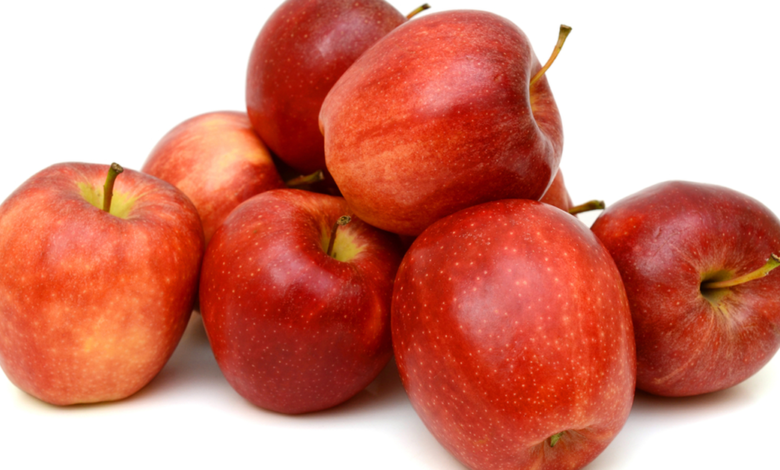Apples: Nature’s Sweetest Gift to Health

Introduction: The Humble Apple That Changed the World
Apples are more than just a sweet, crunchy snack. They’re a symbol of health, history, and even legend. From the story of Adam and Eve to the apple that inspired Isaac Newton’s theory of gravity, this fruit has left its mark on both culture and science.
But beyond myths and metaphors, IT are a powerhouse of nutrition and an everyday miracle. Found in lunchboxes, salads, desserts, and juices around the globe, apples have earned their reputation for being both delicious and beneficial.
Let’s dive deep into what makes IT so special, from their origins to their health benefits, types, uses, and why they deserve a place in your daily diet.
A Brief History of Apples: From Ancient Roots to Modern Orchards
IT have been cultivated for thousands of years. The earliest known apple trees grew in Central Asia, particularly around present-day Kazakhstan. The wild ancestor of today’s apple, Malus sieversii, still grows there in the forests.
As trade routes expanded, apples traveled across continents. The Romans played a big role in spreading apple cultivation across Europe. They improved upon the varieties and grafted trees to produce consistent fruit. By the time apples reached the Americas, thanks to European settlers, they had already become an essential fruit for survival and commerce.
In colonial America, IT were more valued for their juice than their fresh crunch. Apple cider, especially hard cider (alcoholic), was a safer drink than water in many places and became a staple in early American households.
Today, the U.S., China, Poland, and Turkey are among the top IT -producing nations. Despite their global spread, the love for apples remains universal and strong.
Health Benefits of Apples: More Than Just “An Apple a Day”

You’ve probably heard the saying, “IT a day keeps the doctor away.” Turns out, there’s a lot of truth behind it.
Firstly, IT are loaded with fiber, especially when you eat the peel. One medium-sized apple contains about 4 grams of dietary fiber, which helps with digestion, keeps you full, and supports heart health.
Secondly, IT are packed with antioxidants, especially polyphenols. These compounds help fight oxidative stress and reduce inflammation in the body. Some studies suggest that regular apple consumption may help lower the risk of chronic diseases like heart disease, diabetes, and even certain types of cancer.
They also contain Vitamin C, potassium, and natural sugars, making them a great energy-boosting snack. The pectin in apples acts as a prebiotic, feeding good gut bacteria and promoting better digestion.
So yes, IT aren’t just tasty—they’re legit good for you, from your head to your heart to your gut.
Types of Apples: A Colorful Variety for Every Taste
There are over 7,500 varieties of IT worldwide, and around 2,500 are grown in the United States alone. That’s a lot of apples! And each one has its own taste, texture, and best uses.
Let’s start with the sweet crowd-pleasers. Fuji and Gala apples are super sweet and perfect for snacking. Then there’s Honeycrisp, known for its juicy bite and balanced flavor—these are often considered the gold standard among apple lovers.
For those who prefer a tart taste, Granny Smith apples are your go-to. They’re also great for baking, thanks to their firm texture and sour punch. Braeburn, Jonagold, and Pink Lady fall somewhere in the middle, offering a sweet-tart balance that works both fresh and cooked.
Some apples, like McIntosh, get soft quickly and are best for sauces. Others like Rome Beauty and Cortland hold their shape, making them excellent for pies and crisps.
The variety means there’s an apple out there for every palate, whether you want a sweet crunch or a tangy bite.
How to Use Apples: Beyond Snacking
IT aren’t just for eating raw (though they’re great that way). There are endless ways to use apples in cooking, baking, and even drinks.
Baking is an obvious winner. Apple pie is a classic, of course, but apples also shine in muffins, cakes, crisps, and tarts. Their natural sweetness can reduce the need for extra sugar, and their moisture keeps baked goods tender.
Cooking apples into sauces and butters is another tasty option. Applesauce is a comforting food on its own and can also be used as a natural sweetener in recipes. Apple butter, slow-cooked and spiced, is a delicious spread on toast or biscuits.
Then there’s the drink department. Apple juice and cider (both alcoholic and non-alcoholic) are hugely popular around the world. Warm apple cider with cinnamon and cloves is a fall favorite, while chilled sparkling cider makes a fun party drink.
You can even use apples in savory dishes. Try them sliced into salads, roasted with pork, or diced into slaws. Their natural acidity pairs well with meats, cheeses, and herbs like rosemary and thyme.
Apple Storage and Selection Tips
Choosing the right apple and storing it properly can make all the difference in taste and texture.
When shopping, look for apples that are firm, shiny, and free of soft spots or bruises. The skin should be tight and vibrant in color, which usually indicates freshness.
Once home, apples can be stored in the fridge to keep them crisp for weeks. If you’re planning to eat them soon, a fruit bowl on the counter works fine, but avoid storing them near bananas, as apples emit ethylene gas that can speed up ripening (and spoilage) in other fruits.
If you’ve cut an apple and want to prevent browning, a splash of lemon juice or a soak in saltwater helps keep them looking fresh. And remember: always wash your apples well, especially if you’re eating the peel.
Fun Apple Facts You Might Not Know
- Apples are members of the rose family—yep, the same as your garden roses.
- The average apple contains about 80-100 calories.
- Apple trees can live for more than 100 years!
- The largest apple ever recorded weighed over 4 pounds.
- Johnny Appleseed, a real person named John Chapman, helped plant apple orchards across the U.S. in the 1800s.
Apples have even been to space! NASA has sent apple seeds into orbit as part of experiments on plant growth in microgravity.
Final Thoughts: Why You Should Love Apples Even More
Apples are one of those rare gifts from nature that offer both simplicity and sophistication. They’re humble but powerful, sweet yet nutritious, common yet endlessly versatile.
Whether you’re biting into a crisp Honeycrisp on a hot afternoon or enjoying warm apple pie in winter, you’re tapping into a fruit with a rich past, a healthy present, and an exciting culinary future.
So the next time you reach for a snack, make it an apple. Your body, your taste buds, and maybe even your doctor will thank you.
YOU MAY ALSO READ
Apples



